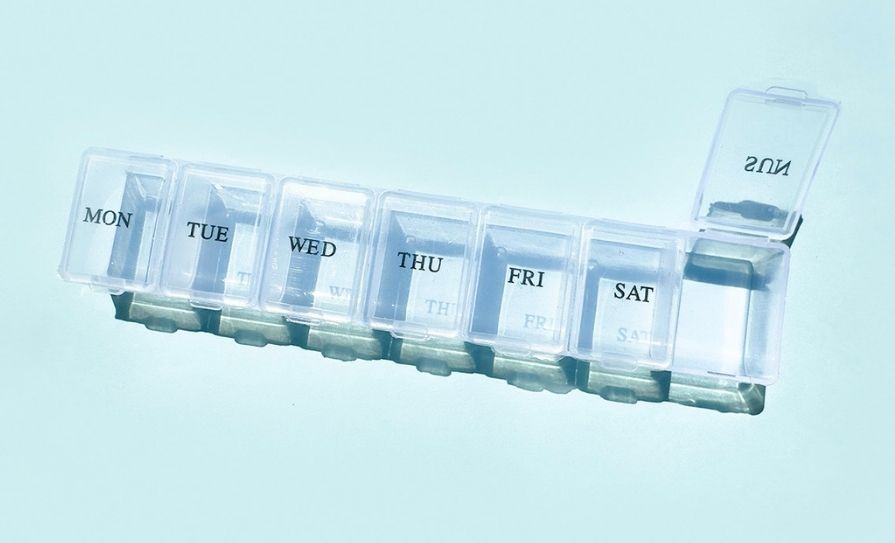Following the seizure of more than 700,000 units of illegal medicines, the HPRA spoke with Irish Pharmacist about the critical importance of community pharmacy in the supply chain
The Health Products Regulatory Authority (HPRA) recently reported a sharp increase in the volume of illegal medicines detained in the first half of 2024 compared to the same period last year. The HPRA’s enforcement section detained 706,881 dosage units of falsified and illegal medicines between January and June 2024, compared to 551,582 units for the same period last year.
Announcing the figures, the HPRA cautioned the public of the serious health risks posed by prescription medicines being purchased online from unauthorised sources. It states that there is no guarantee as to the safety or quality of illegal prescription medicines purchased outside of the regulated pharmacy setting.
The HPRA explained some of the figures in more detail to Irish Pharmacist (IP), and commented on the importance of community pharmacy in achieving supply chain integrity.
In the first six months of 2024, the most significant categories of illegal products detained included anabolic steroids (23 per cent), analgesics (14 per cent), sedatives (11 per cent), and erectile dysfunction medicines (10 per cent).The breakdown is as follows:
- Anabolic steroids – 160,134 units detained.
- Analgesic medicines – 96,481 units detained.
- Sedative medicines – 80,773 units detained.
- Erectile dysfunction medicines – 72,555units detained.
As part of its enforcement measures, the HPRA said it continues to monitor online activity promoting prescription medicines and other substances, and routinely intervenes to disrupt this promotion. In the first six months of this year, the key enforcement actions taken included:
- 1,603 e-commerce listings and/or social media pages amended or shut down.
- One prosecution has been initiated and four voluntary formal cautions have been issued.
Availability
IP asked the Authority if it could drill into some of the reasons for the increase in the volume of medicines seized in the first half of 2024: “The HPRA figures relate to detentions, and a small number of larger detentions can influence the trends significantly,” the Authority said. “Annually, the figures for 2022 and 2023 were down compared to the higher levels of detentions across 2020 and 2021. We know from past research that there are many reasons why people may choose to buy online, including availability, convenience, privacy, and cost.
“Availability is shown to be a key factor in the demand for these potentially dangerous drugs,” it continued. “I believe in the majority of cases, people are choosing to buy medicines online because they know they could never source them legitimately via their community pharmacist.
“Looking at the reasons why people attempt to purchase online, availability is a key factor. For example, if we consider the profile of the medicines detained in the first half of this year, almost a quarter were illegal anabolic steroids. Obviously, these products, where used for body image purposes, could never be prescribed and could never be sourced via community pharmacists. Likewise, semaglutide products are being sourced online because the purchaser is likely aware that they are seeking it for non-medical use and hence choosing to avoid the regulated supply chain.”
This serves to illustrate the importance of pharmacy, it continued. “What this pattern does highlight is the critical importance of community pharmacy and pharmacy business to the overall integrity of the legitimate supply chain.
“We rely on and are grateful to community pharmacists for ensuring products are always sourced from reliable, authorised entities and for facilitating the full functionality of security features carried on authorised packs. All of these measures help us to secure the legitimate supply line for the public.”
Media coverage
Regarding the volume of Semaglutide seized, the HPRA told IP: “There has been significant media and online coverage of this medicine — and that is globally, not just in Ireland. Most people will be aware that this is a prescription-only medicine that is intended for medical use. However, they may well have been exposed to the promotion of this product online for non-medical use, particularly in relation to weight loss.
“Knowing that doctors will only prescribe this product for medical reasons, it is very possible that those who are seeking it for what the European Medicines Agency refers to as cosmetic weight loss, are turning to the Internet and possible online supply. This presents huge risks, as there is no way of knowing what these products actually contain, where they have come from and under what conditions they have been manufactured,” it continued.
“While we have reported an increase in detentions of these products, which suggests an increase in demand, the semaglutide figure overall is still low when compared with other detentions. Of note, not all detentions are pens. Products detained by the HPRA have included tablets and vials of white powder or clear liquid labelled as containing semaglutide.”
In the first six months of 2024, the HPRA detained almost triple the volume of illegal units of Semaglutide compared to last year (Ozempic, Rybelsus, and Wegovy). A partial breakdown on units seized by year is outlined in Figure 1.
| Units Detained | ||||
| Year | Botulinum toxin | Melanotan 2 | Semaglutide | Liraglutide |
| 2020 | 26 | 6 | 0 | 0 |
| 2021 | 394 | 790 | 0 | 8 |
| 2022 | 339 | 950 | 32 | 8 |
| 2023 | 1,748 | 1,329 | 286 | 253 |
| 2024 (first six months) | 872 | 708 | 783 | 66 |
Figure 1: Breakdown of units seized in recent years
Naturally, tracking sales of falsified medicines online can be difficult. “As part of its regulatory activities, the HPRA routinely monitors the Internet for websites, social media sites and e-commerce listings which are advertising the online sale or supply of prescription medicines into Ireland,” the HPRA told IP. “We can take a range of actions to remove or amend these sites. If an individual is identified in Ireland operating such a website, then further investigative activity occurs.” Pharmacists and members of the public can report suspicious activities around the sale or supply of medicines on illegal websites to the HPRA, in confidence, by email or telephone: reportacase@hpra.ie / 01 634 3871.
The HPRA was also asked if it would be open to further collaboration with organisations such as the PSI or IPU in combined efforts to raise awareness among the public of the dangers of bogus medications. “Of course we would welcome the support of other stakeholders in highlighting this issue and are open to collaborating in this regard. The HPRA has launched a number of campaigns to raise awareness of the associated risks with a particular focus on digital advertising to target those who seek out information and products online,” it told IP.
Collaboration
Regarding the future, the Authority commented: “The HPRA will continue, in close co-operation with colleagues from An Garda Síochána and Revenue’s Customs Service with whom there is significant inter-agency collaboration, to combat the illegal supply of health products into and within Ireland,” it told IP.
“We will also continue our co-operation and intelligence sharing with other regulatory and law enforcement agencies nationally and worldwide to prevent the illegal manufacture, importation and distribution of medicines, medical devices, and cosmetics.
“Our message to those whose products we detain, and to those who are considering purchasing online, is clear — there can be no guarantees as to the safety or quality of illegal prescription medicines purchased outside of the regulated pharmacy setting.”
The HPRA concluded by reiterating the importance of pharmacies in its ongoing efforts. “In safeguarding the authorised medicines supply chain, community pharmacy is a vital link in this chain with the profession holding a really high level of public trust and confidence. We look forward to working with pharmacists through engagement with the PSI and IPU as we continue to build on the existing measures in place to secure and maintain legitimate supply,” it told IP.
Body image
Gráinne Power, Director of Compliance at the HPRA, noted the significant increase in 2024 data and the apparent willingness of many people to seek access to unregulated products which may pose significant risks to their health. She emphasised the type of units detained also give an insight into a growing tendency among some consumers to jeopardise their health for aesthetic, cosmetic and body image purposes by seeking out illegal or unapproved substances.
“It’s alarming to see consumers willing to take risks by purchasing illegal medicines online and from unregulated sources and this includes products for cosmetic and body image purposes,” commented Ms Power. “One such example is the amount of illegal anabolic steroids detained. We believe young men in particular may be sourcing anabolic steroids for body enhancement while being unaware of the serious health complications posed by these products. Anabolic steroids can cause serious physical and psychological health issues. The potential physical side-effects alone include heart failure, liver issues, kidney damage, and infertility.”
In conclusion, Ms Power stated that “when consumers acquire any medicinal substances outside the regulated supply chain, they forego any assurance of safety, quality, or effectiveness. Some of these substances might not be authorised by any global health authority, while others may be counterfeit or falsified despite appearing legitimate. It’s crucial not to compromise your health by taking such risks. We strongly advise anyone who has bought prescription medications from unauthorised sources to cease using them immediately and to consult their healthcare provider with any concerns about their wellbeing.”







